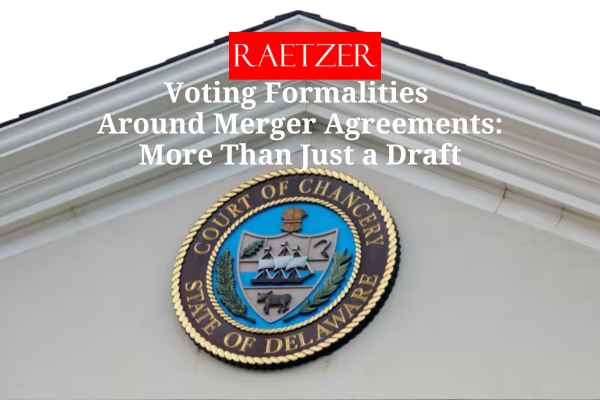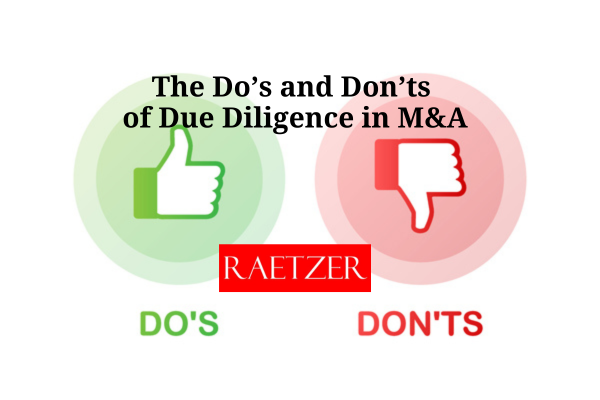In Ap-Fonden v. Activision Blizzard, Inc., C.A. No. 2022-1001-KSJM, 2024 WL 863290 (Del. Ch. Feb. 29, 2024), the Delaware Court of Chancery declined to dismiss claims asserting that Activision Blizzard, Inc.’s (“Activision”) Board of Directors violated Section 251(b) of the Delaware General Corporation Law (“DGCL”) by approving a merger agreement with Microsoft Corp. that was allegedly incomplete. This decision, authored by Chancellor McCormick, underscores the need for boards to ensure that merger agreements meet statutory requirements before approval.
Background
In January 2022, Activision’s Board of Directors approved a draft merger agreement with Microsoft. However, this draft lacked several critical components, including:
- A disclosure letter, referenced dozens of times but not finalized.
- Disclosure schedules, still under negotiation.
- The surviving corporation’s certificate of incorporation.
- Key details such as the consideration amount, the target company’s name and terms for handling post-signing dividends.
Section 251(b) of the DGCL mandates that a board of directors adopt a resolution approving a merger agreement. The plaintiff, a stockholder, argued that this approval requires the agreement to be “execution ready,” while Activision contended that approving near-final drafts is standard market practice.
The Court’s Analysis
The Court emphasized that Delaware’s merger statutes are mandatory, requiring strict compliance. It rejected the argument that a merger agreement must be “execution ready” but held that it must be “essentially complete.”
The Court found it “reasonably conceivable” that Activision’s draft agreement fell short of this standard due to the numerous omissions, particularly:
- The missing consideration (a fundamental term of any merger).
- The absence of the disclosure letter, which contained critical information.
- The missing certificate of incorporation, explicitly required by Section 251(b)(4).
- The unresolved Dividend Provision, a material issue.
While the necessity of disclosure schedules was left open for interpretation, the Court underscored the importance of completeness in the approval process.
The plaintiff also challenged Activision’s compliance with Section 251(c), which requires that a copy or summary of the merger agreement accompany the stockholder meeting notice. Activision’s notice referenced an annex in the proxy statement attaching the merger agreement.
The Court deemed this insufficient, holding that the agreement was deficient because it lacked the surviving corporation’s certificate of incorporation. Furthermore, it ruled that a summary in the proxy statement does not satisfy Section 251(c) unless explicitly integrated into the notice, which differs from practices permitted under other DGCL sections.
Implications
This decision challenges longstanding market practices, highlighting potential conflicts between federal securities regulations and Delaware corporate law. Notably, Regulation S-K, Item 601(a)(5) allows omission of disclosure schedules from SEC filings if they do not contain material information not otherwise disclosed. However, the Court clarified that Delaware’s statutory requirements take precedence in corporate governance matters.
Proposed Amendments to the DGCL
In response to this and similar rulings, the Delaware State Bar Association swiftly proposed amendments to the DGCL. These amendments, aimed at mitigating the impact of these rulings, include:
- Allowing merger agreements approved by boards to be in “final or substantially final form” rather than “essentially complete.”
- Clarifying that a surviving corporation’s charter is not required in the merger agreement when target stockholders are not receiving surviving company stock.
- Establishing that disclosure letters and schedules are not inherently part of the merger agreement.
- Treating any document enclosed or appended to a notice as part of the notice.
Key Takeaways
Practitioners should ensure:
- Completeness of merger agreements: Agreements must include essential terms, exhibits, and statutorily required elements before board approval.
- Compliance with stockholder notice requirements: Agreements or summaries must be properly integrated into the notice to align with Section 251(c).
- Awareness of statutory developments: Proposed DGCL amendments may significantly alter compliance expectations and reduce litigation risk.
This case highlights the Court’s commitment to strict statutory interpretation, serving as a cautionary reminder to balance market practices with Delaware’s legal standards. Given the wide variety of companies that form in Delaware, and the following of Delaware laws by many other jurisdictions, knowing these developments is important when dealing with any potential transaction.




